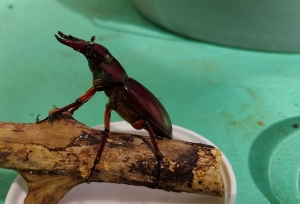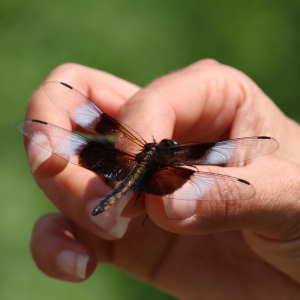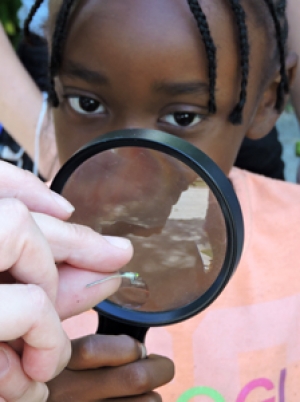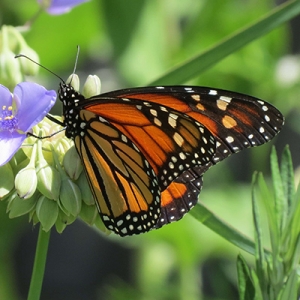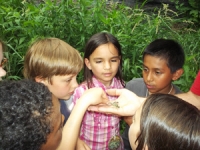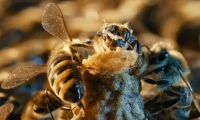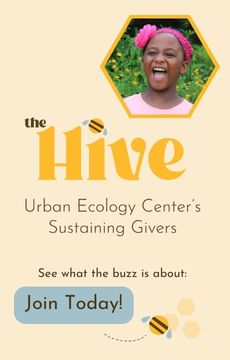
Stag Beetle Discovery
Summer camp is buzzing this year and the campers are making discoveries that continue to amaze me. There are so many interesting parts to nature and my first week of camp we discovered a particularly interesting insect. I present to you: the ever iconic stag beetle.
Research and Community Science intern reflections
What was it like to be a Research and Community Science intern at the Urban Ecology Center?
Where do I even start? I met a lot of passionate people and did several interesting animal surveys. If you stopped by any of the Urban Ecology Center (UEC) branches during the summer, you probably found three young adults with clipboards in hand and backpacks strapped tight walking through the parks. Depending on what time of the summer you came, we either looked slightly confused or highly confident (I am happy to say that the latter was at the end of the summer).
Mother Nature and Father Time
Mother Nature and Father Time. We’ve known they were our family for at least 3,000 years when they first entered into Ancient Greek lore. I prefer to call them our parents and leave out the gender, but let’s focus on their relationship.
It’s prudent to consider time in our daily lives – learn from the past, live in the present, prepare for the future. Nature excels at all three of these things.
See for Yourself: Signs of Life - Habitat Restoration
Our habitat restoration efforts and research projects really go hand-in-hand. As we restore the land, we discover more and more mammals, birds, insects and amphibians using our parks. Our studies also help to determine the number of native plant species we’ve added that have “taken root” and are continuing to grow. Here are just a few highlights you can find.
Cops and Larvas
The thing I enjoy most about working at the Urban Ecology Center is the occasional unforgettable experience I get to share with volunteers. They don’t happen every day, but sometimes Mother Nature waves her wand at a precise second and a really special moment is created. I’ve seen volunteers cry in reverence to close natural experiences and I’ve experienced the pure magic of nature more times than should probably be allowed. But last week a trio of beat cops shared with me a moment that was surely conjured by the powerful mother herself.
A Day of Discovery
There are moments in a naturalist’s career that are magical. You feel like you are in a famous science documentary. The narrator in your head starts to say, “That’s when he discovered the most amazing...” but is cut off by the children surrounding you, giggling with excitement. As you snap back to reality, you think about just how lucky you are to be able to share your passion with these future environmental scientists. I had one of these moments during a new summer camp called “Animal Extravaganza.”
The children gathered in the Community Science room after a full morning of learning about mammals and for some well needed lunch. Now it was time to take our studies out into Riverside Park.
Why the Film "More Than Honey" is Un-bee-lievable (and How You Can Win Free Tickets to See it)
We are proud to be a community partner for "More Than Honey," a new documentary that is showing at this year's Milwaukee Film Festival, which occurs September 26th – October 10th. But what's all the buzz about? "More Than Honey," created by the Swiss filmmaker Marcus Imhoof, looks into the intriguing world of bees and their relationship with mankind, nature and our future. The film, full of close-up footage of bees and their hives, takes us around the world to see how honeybees are treated.
Copyright © 2023 The Urban Ecology Center

